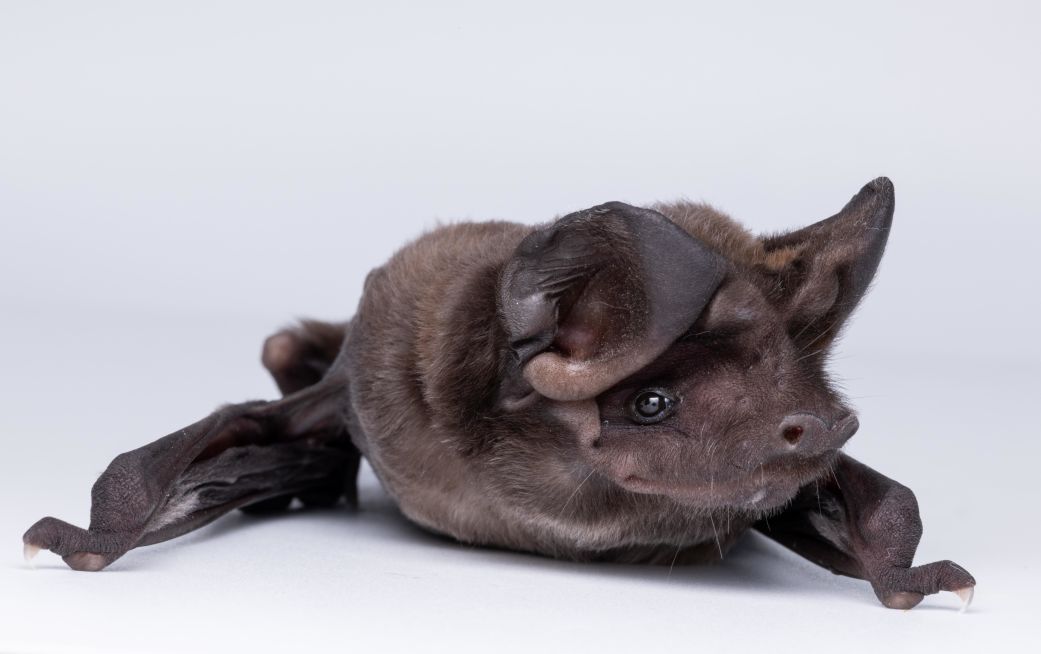Bats are often misunderstood and unfairly maligned, yet they play a critical role in maintaining ecosystem health. Rodrigo Medellín, a senior professor of ecology at the University of Mexico, is on a mission to change perceptions about these vital creatures. Through education and advocacy, he aims to highlight the ecological benefits that bats provide while combating widespread misconceptions.
Medellín’s fascination with bats began at the age of 13 when he first held one in his hands. “That’s when I decided to dedicate my life to their study and protection,” he recalls. Since then, he has immersed himself in bat research, spending much of his time in caves. “The peace, the darkness, the silence apart from the bat squealing. I feel relaxed in a cave,” he explains, a sentiment that resonates with many who share his passion for these flying mammals.
Today, Medellín is part of the Rolex Perpetual Planet Initiative and has received numerous awards for his conservation efforts. He founded both the Latin American Network for Bat Conservation and Global South Bats, a network of bat scientists dedicated to studying and protecting bat populations globally.
With over 1,400 bat species worldwide, these creatures account for approximately one-fifth of all known mammal species. Unique among mammals, bats are the only species capable of true powered flight. They utilize advanced echolocation techniques to navigate and hunt, detecting objects as small as human hair. Despite their remarkable adaptations, bats reproduce slowly, typically giving birth to just one pup per year, making population recovery challenging.
Bats are often viewed through a negative lens, perceived as symbols of darkness and evil due to their association with vampires and folklore in Western cultures. In contrast, Eastern cultures, particularly Chinese culture, regard bats as symbols of luck and happiness. Unfortunately, the perception of bats has deteriorated further following the emergence of Covid-19, with many linking the virus’s origins to these animals. Medellín emphasizes that bats are not inherently more disease-ridden than pets like dogs or cats. “That has been horribly exaggerated,” he notes.
The ecological services bats provide are significant. Medellín highlights that one species found along Mexico’s northern borders alone can number up to 30 million individuals, consuming approximately 300 tons of insects every night. Beyond pest control, fruit-eating bats are essential for seed dispersal, crucial for forest regeneration. “By dropping seeds far from the parent tree, they help maintain plant diversity and support the life cycles of countless other organisms,” he explains.
Bats also play a vital role as pollinators for numerous plants, including agave, the source of tequila. Despite their ecological importance, bat populations face numerous threats primarily stemming from human activity. Habitat loss, wind turbines, pesticide use, and diseases such as white-nose syndrome have led to many bat species being classified as endangered or threatened.
Medellín warns of the dire consequences should bat populations continue to decline. “Imagine what happens if we lose bats overnight. Without them, crops would be ravaged by hungry insects, and mosquito populations would surge,” he states, underscoring the potential disruption to agricultural systems and human health.
To counteract negative perceptions, Medellín is committed to raising awareness of bats’ importance to human well-being. He believes that education can shift fear into fascination. Through initiatives like bat-friendly agave farming, tracking bat migrations, and fostering international conservation networks, he aims to protect bat populations while promoting their roles in pollination and pest control.
“I give people facts, images, evidence, and automatically they fall in love with bats,” he asserts. Medellín encourages those who fear bats to learn more about them. “They are going to win your heart,” he concludes, reflecting his deep commitment to these often-overlooked but essential animals.
